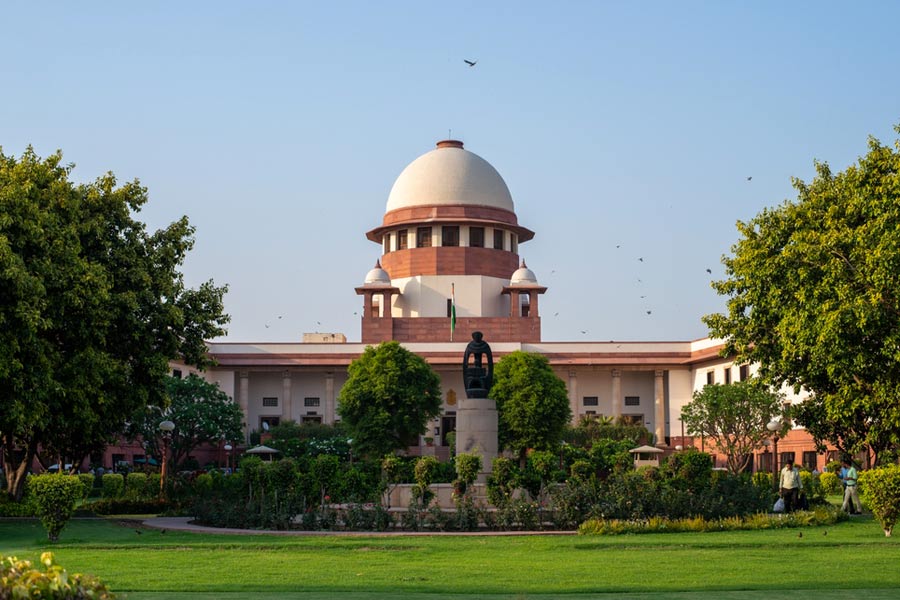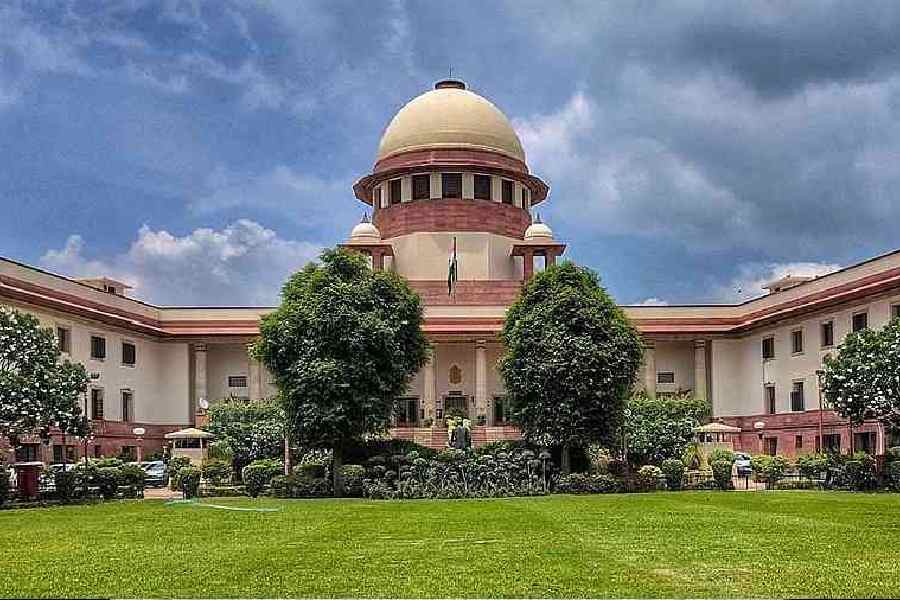The Supreme Court on Monday said the extent of its intervention in the Manipur violence case would depend on what the government has done so far and if the court is satisfied that the authorities have done adequately, it may not intervene at all.
A bench headed by Chief Justice D Y Chandrachud observed if the apex court is not satisfied with the steps taken by the government, then there is a "grave and urgent" need to intervene immediately.
The bench, also comprising Justices J B Pardiwala and Manoj Misra, was hearing a batch of pleas concerning the ethnic violence in Manipur.
Terming as "horrendous" the video of two women being paraded naked in Manipur amid reports that the police handed them over to the rioting mob, the bench asked searching queries over delayed registration of the FIR while mooting the idea of setting up of a committee of retired judges or an SIT to oversee the probe.
"The extent of our intervention will also depend on what the government has done so far. If we are satisfied that the government has done adequately so far, we may not intervene at all. But if we are not satisfied, then we feel that there is a grave and urgent need for us to intervene immediately," the CJI observed during the hearing.
The bench said it will have to also ensure that merely entrusting the probe to the CBI or a Special Investigation Team (SIT) may not sub-serve the purpose and the court will have to issue directions on the modalities, like the recording of statements under section 164 of the Code of Criminal Procedure (CrPC), which deals with recording of confessions and statements before a magistrate.
It said, suppose a woman is in a relief camp in Manipur, who is going to record her statement.
"We can't have her go to the magistrate court and have a statement under (section) 164 recorded," it said.
"We have to necessarily ensure that the process of justice must go to her doorsteps, record her statement, record her statement in conditions which are conducive for recording of statement," the bench observed.
Solicitor General Tushar Mehta, appearing for the Centre and the Manipur government, said the apex court may have a "full-proof" system which may be replicated everywhere.
"We can't develop a system which is full-proof because they are all designed and operated by human beings. We can only try," the CJI observed.
Mehta said the government shares the concerns expressed by the apex court and the Union of India has no objection if the top court monitors the investigation into the violence.
"The highest court of the country monitoring it, there will be nothing greater than that for confidence building measure," he said.
The arguments in the matter would continue on Tuesday.
The apex court on July 20 observed that it was "deeply disturbed" by the video of two women being paraded naked in strife-torn Manipur, saying that using women as instruments for perpetrating violence is "simply unacceptable in a constitutional democracy".
Taking cognisance of the video, a bench headed by the CJI directed the Centre and the Manipur government to take immediate remedial, rehabilitative and preventive steps and apprise it of the action taken.
On July 27, the Centre informed the top court that it has transferred to the CBI the probe into a case related to two women being paraded naked in strife-torn Manipur, saying the government has "zero tolerance towards any crimes against women".
The Ministry of Home Affairs (MHA), in an affidavit filed through its Secretary Ajay Kumar Bhalla, also urged the top court to transfer the trial outside Manipur in the case for the conclusion of the trial in a time-bound manner. Seven persons have been arrested in the case so far.
The affidavit said the central government believed that the investigation should be completed at the earliest and the trial be also conducted in a time-bound manner "which must take place outside Manipur".
Scores of people have been killed and several hundred injured since ethnic violence broke out in the state on May 3 when a 'Tribal Solidarity March' was organised in the hill districts to protest against the majority Meitei community's demand for Scheduled Tribe status.
Except for the headline, this story has not been edited by The Telegraph Online staff and has been published from a syndicated feed.












